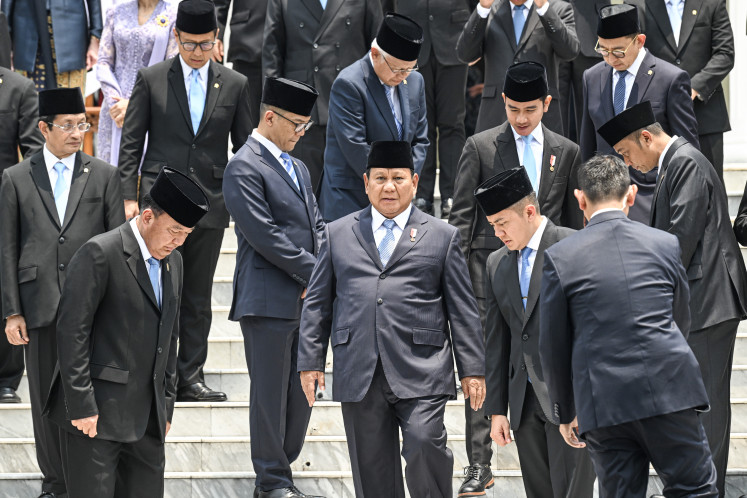Popular Reads
Top Results
Can't find what you're looking for?
View all search resultsPopular Reads
Top Results
Can't find what you're looking for?
View all search resultsCourt rules Philippine Sen. Grace Poe can run for president
The Philippine Supreme Court ruled Tuesday that Sen. Grace Poe can run for president in May 9 elections, overturning an elections commission decision to disqualify her and removing a long-hanging legal question over a tightly fought race to lead the Southeast Asian nation.
Change text size
Gift Premium Articles
to Anyone
Associated Press, Manila
The Philippine Supreme Court ruled Tuesday that Sen. Grace Poe can run for president in May 9 elections, overturning an elections commission decision to disqualify her and removing a long-hanging legal question over a tightly fought race to lead the Southeast Asian nation.
The justices voted 9-6 to favor Poe's petitions against the Commission on Elections decision last December to disqualify her on the grounds that she was not a natural-born citizen and did not have the required 10-year Philippine residency required of presidential candidates, said Supreme Court spokesman Theodore Te.
The decision can be appealed, according to Te.
The decision will provide a major boost to the campaign of Poe, who has already been leading in popularity polls, and removes a legal question over what has been shaping as a closely contested four-way race to succeed President Benigno Aquino III, whose six-year term ends June 30.
"This victory isn't only mine," a triumphant Poe told hundreds of people, who joined an International Women's Day rally by a left-wing group in a Manila square. "This is a victory for all of us."
Poe, 47, has seen her popularity soar since she first ran for office three years ago. She is the adopted daughter of one of the country's most famous movie couples. Her late father mostly played roles as a defender of the downtrodden in a country still plagued by widespread poverty and corruption.
But the Commission on Elections ruled in December that Poe was not a natural-born Filipino as required by the constitution because she was abandoned as a baby by her unknown parents at a Roman Catholic church.
The US-educated Poe, who renounced her Philippine citizenship for about five years to live with her own family in America, also lacked the required 10-year Philippine residency ahead of the vote, the commission said. That prompted Poe to bring her case to the Supreme Court, which she asked to thrash her disqualification.







